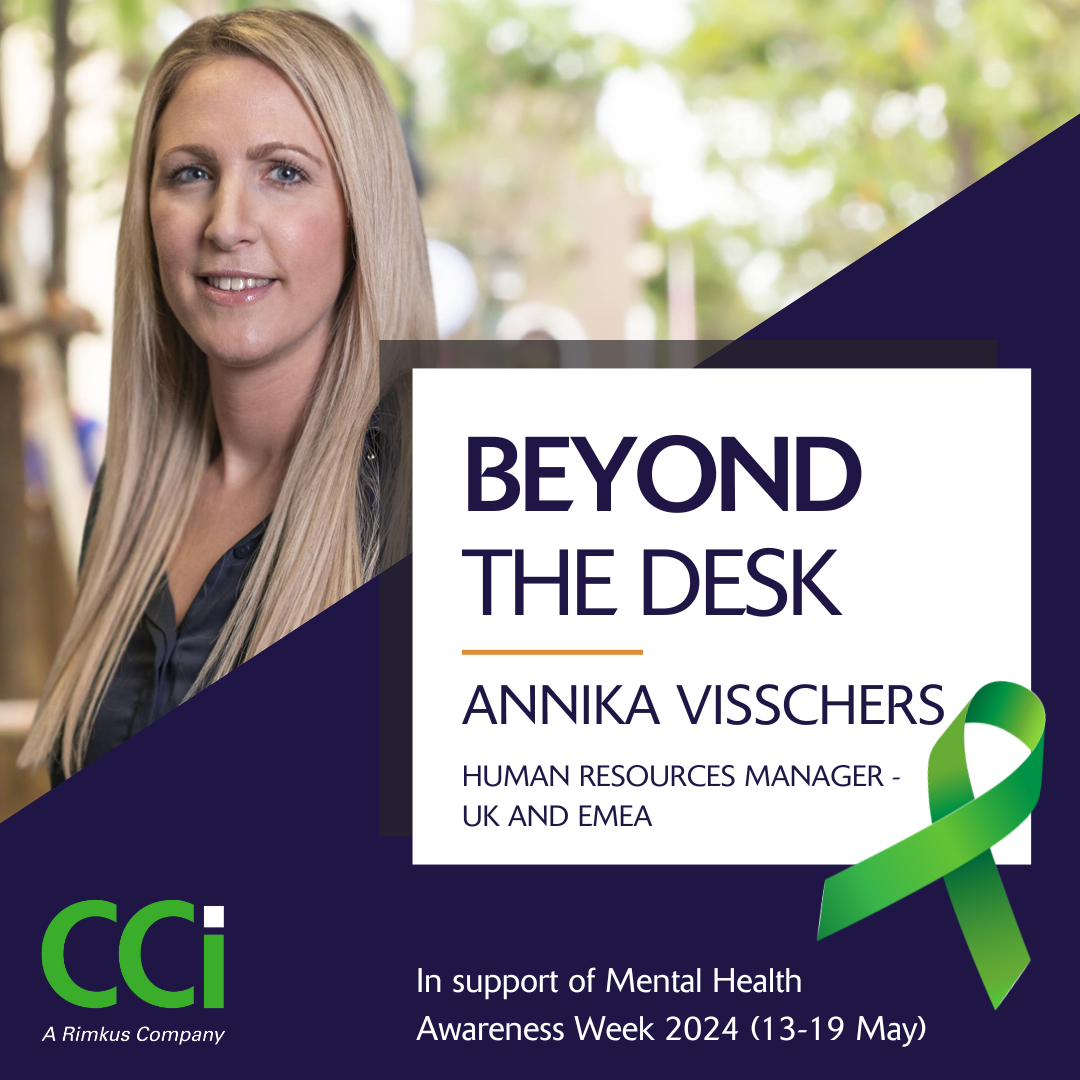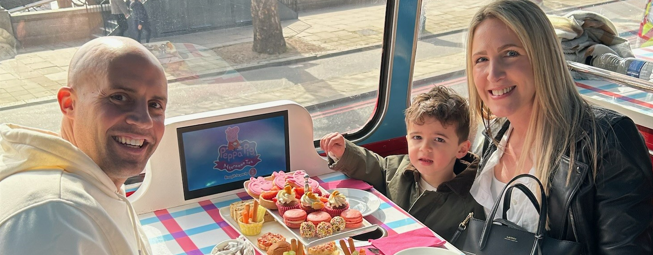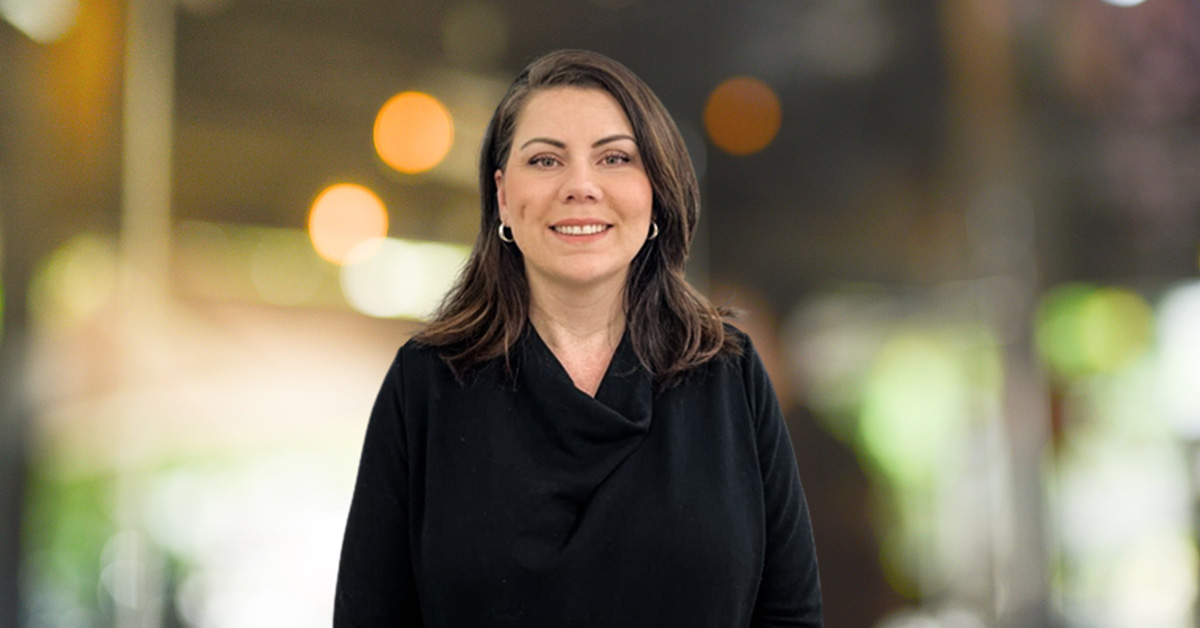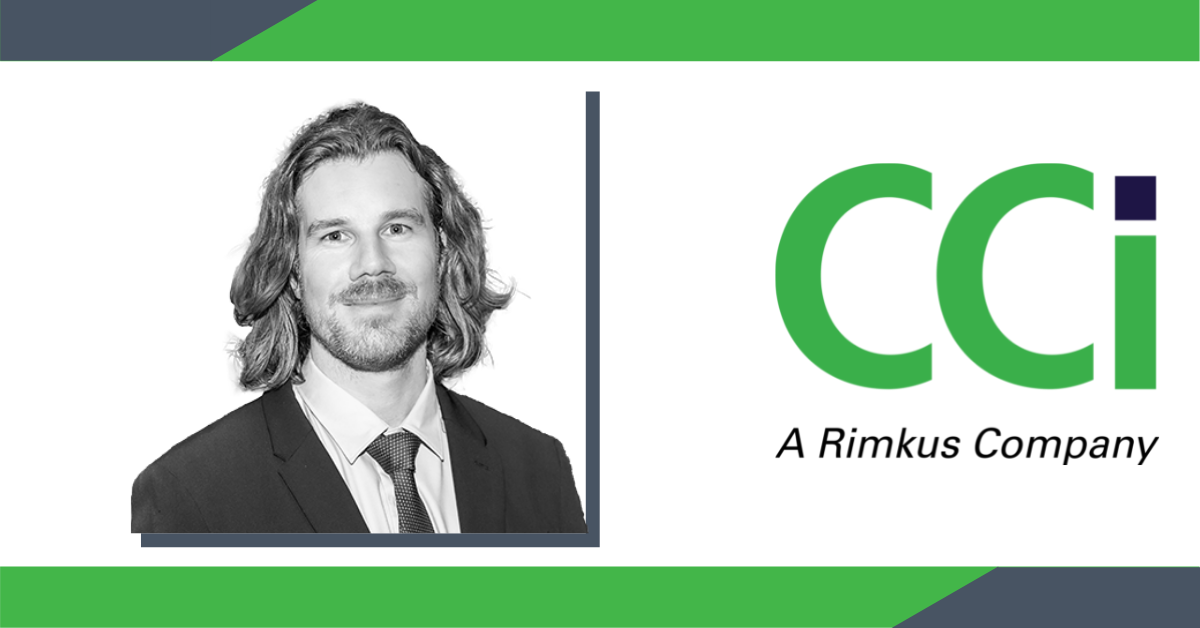Annika Visschers, CCi's Human Resources Manager - UK and EMEA, is a trained therapist whose background lies in psychology.
As part of our series to spotlight the talented people in our business and to facilitate conversations about pertinent issues throughout the year, we spoke to Annika to learn more about mental health and well-being during Mental Health Awareness Week 2024 (13-19 May).

"When you notice psychological changes in yourself, or in others, taking a step to address it is one of the most powerful things you can do. It is not a sign of weakness to seek help. It is a sign of strength."
What does mental health mean to you?
For me, mental health and psychology overlap with so many things in life; you could think about them as the essence of your being. I’ve always been very interested in how the human brain functions and how behaviour is influenced by different situations and experiences. Mental health is incredibly complex, as it’s made up of your genetics, your physiological state, and the social environment you exist in. Often, this means that your well-being is shaped by your relationships with friends and family, your wider communities at work, and events in your everyday life.
You have to be able to understand and help yourself first in order to then help the people around you.
I’d consider myself a person who is open about their emotions. This can be perceived as empathy or sensitivity, but I think most importantly I’ve always been very interested in why I behave the way I behave and respond to things the way I do. I come from a big family with five brothers and my upbringing very much shaped how I think about health and wellness – my mum was a social worker, so I grew up hearing her stories about working with young people and people with mental health difficulties and disabilities. My dad, on the other hand, was very creative, so since I was very young I noticed how my parents were two entirely different human beings, yet I could see traits from both of them in my own behaviour and values.
My interest in people drove me to study psychology at university, where I learned a lot about myself and started to reflect on my mental health more deeply. From my early twenties onwards I began to seek out coaching so I could develop professionally and I also had therapy, which was a vital step towards developing myself on a psychological level. I found that coaching and counselling conversations were very helpful, in different ways; they helped me to improve not only my relationships with peers and relatives, but also with myself.
What was your journey into your current role like?

Annika with her husband and son.
My background lies in mental healthcare; I used to work in the Netherlands with people who suffered from psychiatric illness, addiction, and other disorders, who had committed serious offences. The organisations I worked at, and the treatment I provided, aimed at rehabilitating this group of people back into society. Moving into HR was a shift that occurred when I relocated to the UK and I hoped to be able to do more preventative work in this space, where my skills could overlap to help businesses prevent things like burnout and depression. I was encountering both the new professional landscape of the UK and the new territory of HR at the same time, which was quite challenging. I saw connections between my years of experience supporting people in the Netherlands and the potential difference I could make in a people-focused role in HR; I wanted to help people feel comfortable and confident at work and to get the most out of their working lives.
I believe work is basically an extension of your personal life – after all, many of us spend the majority of the week at our jobs – so it’s incredibly important that we feel safe and supported in our workplaces. This is where I see the importance of my personal growth and professional development in mental health. I try to draw those experiences into the world of HR by supporting team dynamics and facilitating communication in a healthy way, where everyone is treated equally. At the heart of all this is my commitment to make sure people feel well in themselves and happy in our workplace.
What are some of the misconceptions people have about mental health?
 Although there have been developments in mental health awareness over the years, you might still hear people say that psychological or emotional difficulties are something you “just deal with” privately. Sometimes people associate seeking help with weakness. I see it from the complete opposite point of view: if you’re able to notice changes in how you feel – or changes in the behaviour of someone else – and then take a step to address it, that’s one of the most powerful things you can do.
Although there have been developments in mental health awareness over the years, you might still hear people say that psychological or emotional difficulties are something you “just deal with” privately. Sometimes people associate seeking help with weakness. I see it from the complete opposite point of view: if you’re able to notice changes in how you feel – or changes in the behaviour of someone else – and then take a step to address it, that’s one of the most powerful things you can do.
I also believe misconceptions arise from the ‘unknown’ surrounding mental health, particularly when people haven’t had the opportunity to become comfortable with talking about things like depression. To address these misconceptions, we need to build the right network of support, both at work and in our families and communities, where we recognise that we all have a responsibility to look out for each other.
At CCi, we have a variety of resources available to support our people. We have trained colleagues to become Mental Health First-Aiders through the CPD Online College, to provide initial support to employees experiencing mental health issues or emotional distress. We also offer resources like a 24/7 mental health support line, and up to five counselling sessions as part of our staff benefits program. It’s important for us to provide a variety of options so support is available for everyone, at every level of the organisation. We also continue to reflect on areas we can improve to make sure mental health is an open conversation for everyone and focus on building a compassionate workplace culture.
What are some of the ways you look after your own mental health or well-being?
 I’m very proud to say that I’ve had counselling in the past, because I have seen a huge amount of personal growth since then; it’s taught me important coping mechanisms and I’ve learned how to deal with situations that I wouldn’t have been able to deal with before. Exercise and movement are also incredibly valuable, evidence-based ways to improve your mental well-being, reflected in this year’s Mental Health Awareness Week theme.
I’m very proud to say that I’ve had counselling in the past, because I have seen a huge amount of personal growth since then; it’s taught me important coping mechanisms and I’ve learned how to deal with situations that I wouldn’t have been able to deal with before. Exercise and movement are also incredibly valuable, evidence-based ways to improve your mental well-being, reflected in this year’s Mental Health Awareness Week theme.
I have loved swimming since I was around six years old, and eventually I went into competitive swimming. It still brings me such a sense of relief and happiness and I find I’m able to switch off after a difficult day when I’m in the water. We’ve recently started taking our young son to swimming lessons and it’s wonderful to see the joy on his face when he jumps in, because it’s the same way I feel; it takes me back to when I discovered swimming as a child, and the comfort it’s always brought me.
However, it can be incredibly difficult to pick up new habits like exercise if you are in a dark place; it can seem like a mountain to climb. I’ve had periods where I’ve found it too hard to find the motivation to get to the gym, even though I know I will feel better after a swim. Gradual changes are the key here: sometimes just being outside, or picking up the phone to speak to a friend, is enough to uplift your mood in the short term. Even deep breathing exercises, which you can do anywhere, are shown to offer huge relief during stressful situations.
Sometimes all we really need is to be able to change how we feel in the "here and now." The trick is to take small steps and not look too far ahead.
Movement, relaxation techniques, and talking about our mental health might seem like small things to do, but sometimes all we really need is to be able to change how we feel in the ‘here and now’, in the short term. We might not be able to fix everything into the future, but the trick is to take small steps and not look too far ahead. What works now won’t necessarily be the same thing that works next year and different pressures will come along and pose new challenges that we might not have control over – like the changes we faced during the pandemic, or the challenges of the “cost of living” crisis. But that’s why it’s so important to keep talking about mental health over time, and to recognise that seeking help and prioritising your well-being is a very healthy thing to do.
To find out more about how you can get involved in Mental Health Awareness Week 2024, visit the Mental Health Foundation’s website through the link below.
About CCi
CCi is an independent global consultancy whose experts advise the insurance and construction industries on delay/time, quantum/cost, technical, and project management issues.
With more than 200 consultants operating from 21 offices worldwide, we bring clarity and resolution to some of the world’s largest and most complex insurance claims and construction disputes.
Media Contact
Rebecca Bevington
Marketing Manager – EMEA
rebecca.bevington@cci-int.com
Home | Beyond the Desk with Annika Visschers


